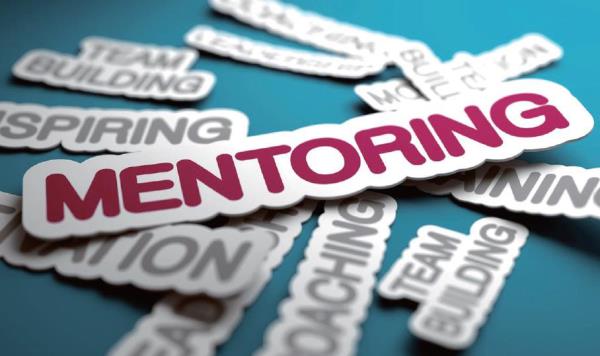Late in the afternoon, many classrooms are noisy with a lot of students. High school students and undergraduates mix together in one room. They are surrounded with books and consulting sheets on desks. These groups of students meet several times for mentoring programs. Undergraduates visit high school students under the name of ‘mentor.’ They help students with academic subjects, give advice on entrance examinations, and answer general curiosity questions. With the extension of these mentor and mentee relationships, many high school teenagers are being provided with useful tips and information from experienced hands.
Rising Tide of Mentor and Mentee
There are several types of mentoring in our lives. We can mostly think about professors teaching students in university or part-time lecturer giving information to students. But typical mentoring system is on the rise these days. There are many university students providing advice and information related to academic problems to teenagers. Even though high school students may ask the teachers in their schools for advice, most students are hesitant to tell trivial problems to their teachers. As a result, undergraduate students visit teenagers under the name of ‘mentor.’ Since the generation gap between undergraduates and teenagers is small, high school mentees easily get close to their undergraduate mentors. According to Joong-ang Educational Foundation, 8000 students participated in a mentoring camp at Hanyang University during vacation, and this number went up from the last camp.1 Rather than offering supplementary lessons during vacations or spare periods, many high school and university students prefer to spend time together forming mutual relationships. Mentees acquire useful real-life tips from mentors, while mentors get extra credit or are paid a wage. These exchanges benefit mentors and mentees in a perfect match.
Sinking into Mentoring Floods
Although there is an increasing number of mentoring programs between high school and university students, many problems have arisen. First, students themselves do not participate in the mentoring groups seriously. Most mentors who are university students participate in the activity merely to acquire extra credit for college or to get money. According to Gongshin Camp, one of the student mentoring organization, university students receive about 70,000 won in compensation for working as a high school mentor during the vacation.2 In other words, many university students merely engage in mentoring programs for personal profit. This results in poor teaching or counseling of the high school students. If the mentors do not work earnestly, mentees naturally lost interest. They will chat or engage in wordplay during the program. Kim Jiyoon, majoring in Business Management at Korea University ’13, said, “Working as a mentor at Gongshin Camp, I realized that many high school mentees don’t respect us since we are often not serious about the program. We just partake in light conversations as we teach several chapters.” As mentors and mentees meet in classrooms, most meetings end with the teaching of several pages and little or no actual counseling. Accordingly, about 40~50% of high school parents do not have much faith in the credibility of university mentoring programs since their children learn almost nothing.3 Furthermore, problems are also indwelled in the mentoring program itself. In university mentoring programs, most university students teach high school subjects that do not match their major. Although they have sufficient ability to teach high school subjects, the efficiency drops when the program does not match their majors. For instance, the benefits are lower when a mentor who majors in English Literature teaches math compared to a mentor majoring in Math teaching mathematics. Oh Minjoo, Division of Child Welfare and Studies ’13, said, “I teach subjects that are covered in high school. Even though I studied them, it is hard for me to teach and counsel mentees since the curriculum has changed a lot since my high school years.” Asking university students to teach every high school subject can be hard for them. Considering each mentor’s competence and having them teach their specialty subjects would raise the efficiency of mentoring programs. Lastly, university student mentoring programs are not widely known due to a lack of advertising. Even though a number of high school students are currently participating in mentoring programs, most students do not utilize them during their spare periods or on vacations. With little information about mentoring programs, they think mentoring programs do not provide any diversity in the aspect of the learning process. Yoon Seohyun, member of TITO Mentoring Ambassador, said, “Though we strive to support and advertise mentoring programs, we can find out that many high school students still do not know what a university mentoring program is. Most of them only get information from their parents.”4 In other words, most high school parents do not have enough information about university mentoring programs to introduce them to their children. Every semester, many university students advertise mentoring programs by posting on high school community websites or by visiting high schools. However, there is a lack of support for most mentoring programs, so they are not utilized efficiently. Because of this phenomenon, university mentoring programs have yet to be introduced to more high schools despite the diversity of the programs.
Friendly Shower for All of Us
Before finding an alternative for the program or supporters, it is important to change high school and university students’ attitudes towards the program. For university students, they should recognize their sense of duty under the name of ‘mentor.’ They should realize that high school students are always anxious and busy preparing for the entrance examination. Thinking about their past high school years, university students should participate in scheduled programs seriously by providing mentees with useful tips and information. Most high school students are influenced by their surrounding atmosphere. If mentors work diligently on teaching and counseling throughout the entire program session, mentees would follow them with serious attitudes. Moreover, the structure of the program itself should be improved in order to spread information about university mentoring programs. A better match between mentor’s individual competence and majors with teaching subject is needed. As mentors are experts in a specific area, mentees would easily get help and be able to learn a subject better. The programs should have mentors to teach their specialty subjects to mentees. Rather than having one mentor per mentee, a mentor can be assigned to a specific subject. Lee Younsoo, one of the mentees in a mentoring program during summer vacation, said, “I could learn diverse subjects better by having different mentors for different subjects. Even though I had a specific mentor for counseling, I had a different mentor from whom I learn school subjects such as math or science.”5 It would be beneficial for both mentors and mentees to revise the program and match individual mentor’s capability with teaching subject matter. Furthermore, advertising of university mentoring programs needs more support and aid in order to spread awareness among people. University students should frequently post information on high school websites. Also, it would be more effective if members of mentor groups were from diverse universities. Since each high school student wishes to enter a different university, their idol mentors could stimulate their dreams and encourage them to study harder. As university mentoring programs match high school student preferences, relationships between mentors and mentees grow closer when stimulating. Great outcomes would spread the program among high schools and parents who will support their children’s participation in mentoring programs. With this earnest effort, university mentoring programs would be better utilized among people.
Being Excellent Together
Exchange benefits each party. If mentors and mentees utilize their time efficiently, both will learn many things from each other. Rather than partaking in light conversations, mentors must be responsible and give useful advice to help teenagers. They should realize the importance of their visits to high school students. On the other side, mentees also should participate in the projects actively. They should try to get maximum help from their mentors during the meetings. Acquiring tips from university students is slightly different from getting help from a homeroom teacher. If mentors and mentees fix and strengthen their attitudes, they could surely make a perfect harmony.
1 Jung Inseon, “Providing Study Know-How through the 1:1 Mentoring Programme,” Newsis, December 16, 2013
2 Byun Sunkyung, “Questions and Answers about University Mentoring Programs,” Newsis, May 24, 2012
3 Kim Giwoong, “Afterschool University Mentoring, ‘F’,” GookJae News, January 25, 2013
4 Choi Junhee, “Holding Honors Ceremony for Human Network Mentoring Programs,” EBN, December 20, 2013
5 Lim Youngkyu, “A Rise in Satisfaction Among Students and Parents of Mentoring,” DailyGrid, May 13, 2014








